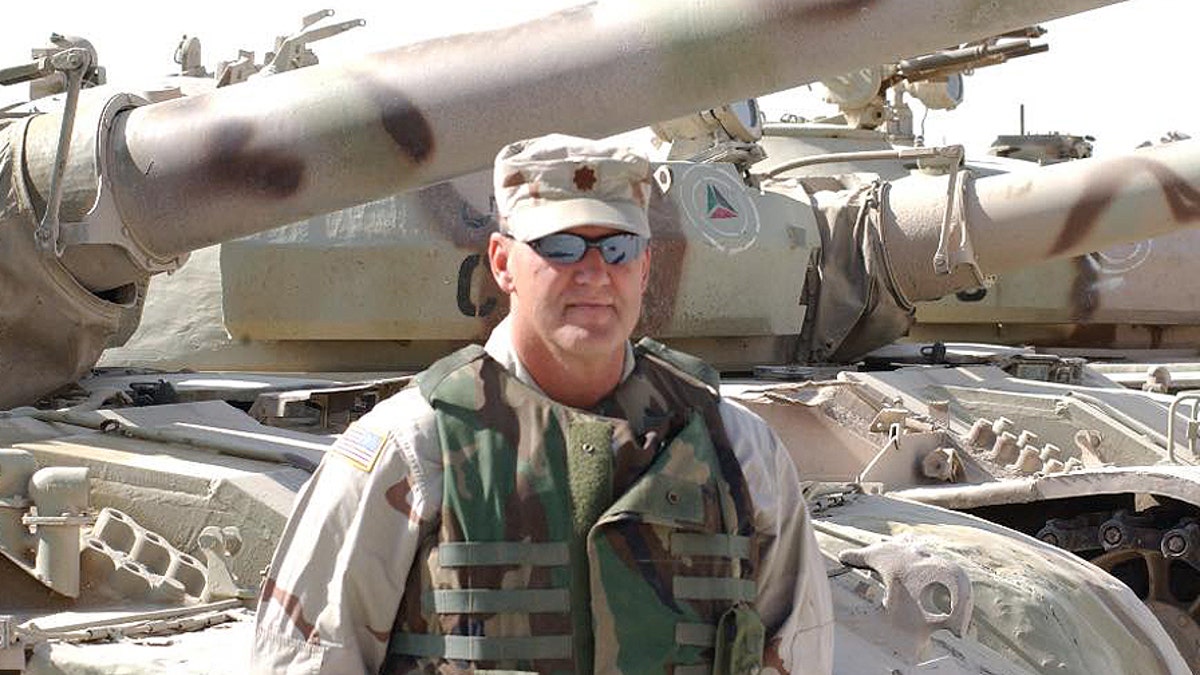
Michael Heston passed away on Thursday. He had Stage IV pancreatic cancer. His family believes it was his exposure to burn pits while he served in Afghanistan that led to his terminal illness. (Courtesy of the Heston Family)
The top-ranking official from the Vermont National Guard, whose family believes his aggressive cancer was due to his exposure to burn pits, died on Wednesday.
Brigadier Gen. Michael T. Heston, who also was one of the highest ranking members of his state's National Guard when he served as Assistant Adjutant General, succumbed to Stage IV Pancreatic Cancer on Thursday—just days after stopping treatment and being placed in home hospice care with his family.
News of Heston’s death was first posted on the Facebook page of the Vermont National Guard, with whom he served for over three decades.
"He was a highly-respected Soldier and true Green Mountain Boy that embodied our core values of Integrity, Excellence and Service,” read the statement from current Adjutant Gen. Major Steven Cray. “Please keep General Heston's family in your thoughts and prayers as they go through this difficult time.”
Heston also completed a total of three tours in Afghanistan from 2003 to 2012. Each time, he was exposed to the toxic clouds that emanated from burn pits-- a system of waste disposal, used on military bases, where everything from plastics to batteries to appliances to medical and human waste was thrown into open-air dumps, doused with jet fuel, and set ablaze. At nearly every single base where Heston was stationed, active burn pits were near their barracks and other common areas.
“He had been in treatment until this past September,” Heston’s wife, June, said in an interview with Fox News earlier this week. “He stopped chemo and then started radiation treatment until two weeks ago, when they told him that there was nothing more that they can do.”
“I feel like once they told him, he’s been very ill. There’s no treatment left for him.”
Heston, who also was a Vermont state trooper, commanded at all levels throughout his 34-year career, starting with platoons and working his way up to brigades. He returned in 2012 and started feeling symptoms in March 2016. What started as back pain turned out to be cancer, but June says it took nearly 10 months for him to get a proper diagnosis.

Heston's Wife June and their children, Dr. Kelsey Heston, 26 and Keegan, 22, are tendeded to their father after he recently stopped treatment and returned home for hospice care. (Courtesy of the Heston Family)
“They spent months trying to figure it out,” she says. “They didn’t give him the test that would have shown his cancer.”
Tens of thousands of veterans reportedly believe their health has been compromised by the polluting smoke expelled from burn pits on their bases.
The burn pit method was originally a temporary measure during the wars in both Iraq and Afghanistan as a way to quickly dispose of waste and garbage on military installations. The vets claim their prolonged exposure to toxic air left tens of thousands of them, as well as private contractors, with a myriad of illnesses including various forms of cancer and severe respiratory issues. Many succumbed to their illness, but nearly all who feared they got sick from exposure to burn pits never received proper help from the country they went to war to defend.
Senator Patrick Leahy, D-Vt., and vice chairman of the Senate Appropriations Committee, where he has worked on the issue, recently said, “Mike Heston has been a dedicated public servant and the very definition of a true leader as long as I have known him. True to form, he has transformed his own difficult personal struggle with cancer into a fight for the men and women of the Vermont National Guard and throughout the nation who may be suffering from exposure to airborne hazards from burn pits.”









































